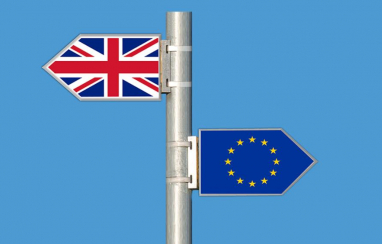- 300 - IetpShops - Air Jordan 1 High OG Celadon FB9934 , air jordan 1 retro high gg black hot lava
- nike factory outlet online shopping
- bb8587 adidas women sneakers new release
- IetpShops - Is a Nike SB x Air Jordan 8 Retro BG Three - 142 Pine Green in the Pipeline Low PSG DZ4133 , 008 Release Date - Is a Nike SB x Air Jordan 4 Pine Green in the Pipeline - Peat 305368
- Пилинг - диски с bha и pha - кислотами needly daily toner pad 1шт — цена 50 грн в каталоге Скрабы для лица ✓ Купить товары для красоты и здоровья по доступной цене на Шафе , Украина #112548157
- air force 1 shadow
- Travis Scott Air Jordan 1 High OG CD4487 100 Release Date Price
- Air Jordan 1 Satin Black Toe CD0461 016 2019 Release Date 4
- Air Jordan 1 Mid Bred 554724 074 2020 Release Date 4
- kids air jordan
- Home
- News and analysis
- Info hubs
- Events
- Video
- Case Studies
- About us
- Magazine
- Advertising
Produced for the industry by the Association for Consultancy and Engineering
Analysis
The impact of Brexit on environmental businesses

Uncertainty is always a key business risk, but it is becoming a more prevalent concern for businesses in the environmental sector as Brexit moves ever closer, say Joanna Ketteley and Michael Rudd.
Although there has been extensive comment and thinking about Brexit and its potential implications, there are still unknowns. Below, we have provided some structure to a collection of anecdotal, subjective observations that we have received from various stakeholders.
1. Investment requires stability and certainty.
Whilst the government has committed to a 25-year Environment Plan and stated that the Great Repeal Bill will ensure existing EU environment law will continue to have effect in UK law, there remains uncertainty over policy direction, particularly for energy.
Renewable Heat Incentive (RHI) projects demonstrate how detrimental uncertainty can be. There has been considerable delay in the implementation of BEIS’ RHI reforms and this has stalled a number of viable projects, including those that utilise waste-based feedstock to produce biogas and bio-methane.
2. Resource efficiency is an economic necessity and a market differentiator.
There is an increasing move towards a circular economy with great appeal for businesses that focus on sustainability. The concept is progressing. In January 2017, the European Commission published three roadmaps relating to its 2015 Circular Economy Action Plan and a communication on the role of waste-to-energy in the circular economy. It is also building on initiatives such as eco-design and labelling. Government needs to be clear on how it will establish a circular economy post-Brexit if UK industry is to reap maximum economic advantage from this concept.
3. Organisations continue to strive to lower, or at least manage, costs.
Energy intensive industries (some who can choose to locate here or abroad, others who need to maintain competitiveness) look to government for fiscal and policy support. Whilst energy management is higher on BEIS’ radar now, organisations are still seeking greater and coordinated policy clarity from Whitehall to further stimulate energy management solutions. One solution - among a range available - is corporate power purchase agreements. Such agreements have been used for over a decade but are gaining momentum in more recent times, allowing corporate consumers to purchase power on a long-term basis directly from renewable energy generators.
4. Participants in a free market should all operate under the same rules, on a fair playing field.
Effective and fair enforcement is key and many worry that Brexit threatens this. The UK Environmental Lawyers Association has noted that the European Commission and European Court of Justice provide a strong check on implementation by governments of environmental law (which often stems from EU legislation). It remains unclear who will fulfil this role post-Brexit. The Environment Agency is not sufficiently resourced and there is often no clear economic interest in the environment to spur legal review action. There must be a mechanism to check government action/implementation, to ensure government remains accountable and strives for environmental protection.
5. Product compliance is a key consideration for suppliers when exploring access to markets.
Export markets ideally have the same or at least equivalent requirements, otherwise compliance becomes a barrier to trade. Brexit is highlighting this. Government recognises that product compliance legislation needs to be aligned post-Brexit to avoid the economic burden of double regulation, but there remains uncertainty about future legislation and the impact on products yet to be launched. Business needs confirmation on that also, to allow investment in production cycles.
6. There is considerable value in transparent reporting of environmental and sustainability performance and risks.
Corporates report for many reasons - CSR commitments, achieving market leader advantage, supply chain pressure, assessing legislative compliance and potential efficiencies, employee recruitment and retention - and investors and shareholders are increasingly scrutinising environmental management and place pressure on companies to report.
There are also increasing legislative obligations to report. The Companies, Partnerships and Groups (Accounts and Non-Financial Reporting) Regulations 2016 implement the EU Non-Financial Reporting Directive 2014 and clarify requirements for an annual statement relating to environmental, social and employee-related matters. Whilst there are voluntary initiatives and market drivers, we hope government continues to support this progress with legislation post-Brexit.
In conclusion, our clients are ambitious and strive for transparent, efficient, compliant and sustainable production and investment. They need clear and long-term government support for that innovation and leadership, especially post-Brexit.
Joanna Ketteley is head of environment, London, and Michael Rudd is a commercial partner and co-head of international energy and utilities sector group, both at Bird & Bird LLP.





